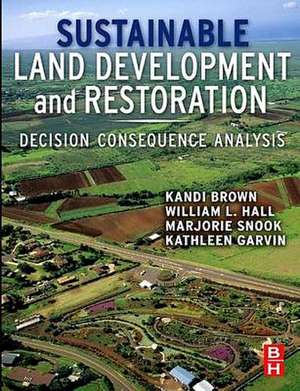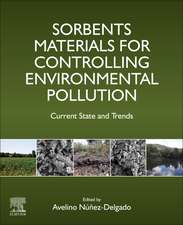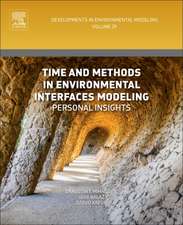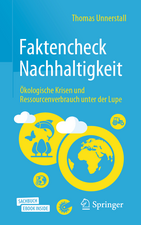Sustainable Land Development and Restoration: Decision Consequence Analysis
Autor Kandi Brown, William L. Hall, Marjorie Hall Snook, Kathleen Garvinen Limba Engleză Paperback – 19 aug 2016
Sustainable Land Development and Restoration provides a toolbox to both the novice and experienced environmental practitioner of valuable techniques for addressing site specific environmental issues, as well as managing a portfolio of liabilities on an international scale. Ultimately, the authors are addressing the critical issue of balancing environmental asset balance sheets, whether on the scale of an individual project, across a company's portfolio, or for a community. The environmental manager who adopts the principles in this book will have greater confidence that environmental protection or restoration activities are providing measurable utility. The goal is that, through multidimensional resource management analysis and practices companies and societies can achieve sustainable maintenance of a balanced environmental system.
Descriptions of technical, contracting and implementation processes are supported by detailed case studies to provide real world context rather than an academic exchange of theories.
- Techniques for addressing site specific environmental issues
- Multidimensional resource management analysis
- Case narrative, data base, and GIS linked
Preț: 592.74 lei
Preț vechi: 651.36 lei
-9% Nou
Puncte Express: 889
Preț estimativ în valută:
113.46€ • 123.28$ • 95.37£
113.46€ • 123.28$ • 95.37£
Carte tipărită la comandă
Livrare economică 14-28 aprilie
Preluare comenzi: 021 569.72.76
Specificații
ISBN-13: 9780128101957
ISBN-10: 0128101954
Pagini: 528
Dimensiuni: 191 x 235 x 27 mm
Greutate: 0.89 kg
Editura: ELSEVIER SCIENCE
ISBN-10: 0128101954
Pagini: 528
Dimensiuni: 191 x 235 x 27 mm
Greutate: 0.89 kg
Editura: ELSEVIER SCIENCE
Public țintă
Environmental Engineers, Toxicologist, Chemical Engineers, Industrial Hygienists, Environmental Analysts, and Environmental Risk ManagersCuprins
Part One: FOUNDATION FOR DECISION MAKING1.Defining Problem and Objectives 2.Data Management and Mining3.GIS 4.Remote Sensing 5.Statistics6.Forensics Analysis7.Risk AnalysisPart Two: DECISION ANLYSIS8.Alternatives Analysis - Billy9.Uncertainty and Tradeoff Analysis 10.Robust Performance Metrics11.DCA Model Construction Part Three: DECISION IMPLEMENTATION12.Sustainable Diverse Stakeholder Engagement 13.Implementation ToolsPart Four: SUSTAINABLE LIABILITY MANAGEMENT14.Portfolio Risk Management Analysis 15.Environmental Balance Sheet





















